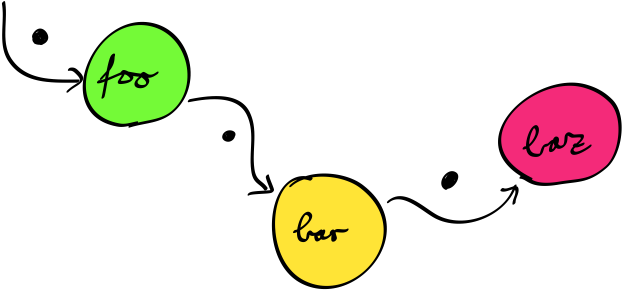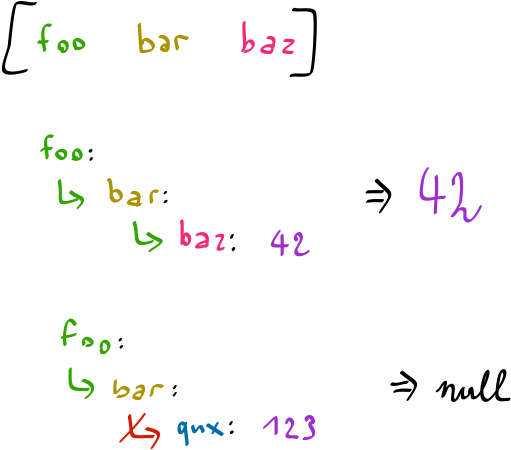Functional Library: Traversal
Traversing associative data structures in PHP is fun. Said no one ever.
The problem is a common one if you’re processing any kind of data, for example a response from a JSON API. You need to access some nested structure, but you don’t know if what you’re accessing actually exists. So Maybe there is a better way to handle this that does not involve PHP throwing notices in your face.

The dreaded notice
This is what I’m talking about:
$data = ['people' => [['name' => 'Mario']]];
var_dump($data['people'][0]['age']);
Since the age property does not exist, it will give you this:
PHP Notice: Undefined index: age in foo.php on line n
But surely you can get a default value for it. Right?
$age = $data['people'][0]['age'] ?: null;
Wrong. You get the same notice. You could add an @ in front of the acces,
but we will not go there because @ is evil and must never be used. If you
don’t believe me, go look up what xdebug.scream is.
So in order to do this correctly, you need to produce the following copy-pasta:
$age = (isset($data['people'][0]['age'])) ? $data['people'][0]['age'] : null;
Ultra-cringeworthy.
get-in
How often have you written this piece of code:
$baz = (isset($data['foo']['bar']['baz'])) ? $data['foo']['bar']['baz'] : null;
Have you ever thought to yourself there must be a better way?
There is a better way.
use function igorw\get_in;
$baz = get_in($data, ['foo', 'bar', 'baz']);
All of the duplication is gone. It is now just one single array that describes the traversal.
get-in is a function that takes an associative structure and a list of
keys that represent the nested traversal. Optionally, you can provide a
default value for non-existent keys, if none is provided it will return null
in that case.

Library
The above example is based on the igorw/get-in library.
In case you are wondering about the name, it is based on the get-in function
present in clojure.
This library is quite tiny, by design. It solves one small problem. Next time
you are about to put in a monster isset, remember get-in.
The first Donkey Kong was released in July 1981, Mario is 32 years old.
